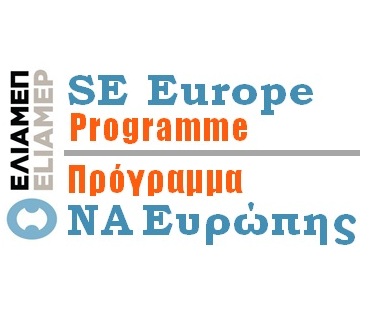 The Hellenic Foundation for European and Foreign Policy (ELIAMEP) organised an event on Friday 20 December 2013 in Athens, to present the findings of the first ever joint effort for a comprehensive study of the status of relations between Greece and Albania. Introductory remarks were made by Dr Th. Dokos (Director General of ELIAMEP), Mr Ch. Katsioulis (Director of FES in Athens) and Dr. A. Rakipi (Executive Director, Albanian Institute for International Studies). The reports were presented by Dr Armakolas (Stavros Costopoulos’ Research Fellow & Head of South-East Europe Programme, ELIAMEP) and Ms Alba Cela, Deputy Director, Albanian Institute for International Studies. Comments were provided by Dr Baltsiotis, (Adjunct Lecturer, Panteion University), Mr R. Lani (Executive Director, Albanian Media Institute), Mr P. Misha (Executive Director, Albanian Institute for Dialogue and Communication) and Dr. D. Sotiropoulos (Associate Professor, University of Athens & Senior Fellow, ELIAMEP). You can find the programme of the event here.
The Hellenic Foundation for European and Foreign Policy (ELIAMEP) organised an event on Friday 20 December 2013 in Athens, to present the findings of the first ever joint effort for a comprehensive study of the status of relations between Greece and Albania. Introductory remarks were made by Dr Th. Dokos (Director General of ELIAMEP), Mr Ch. Katsioulis (Director of FES in Athens) and Dr. A. Rakipi (Executive Director, Albanian Institute for International Studies). The reports were presented by Dr Armakolas (Stavros Costopoulos’ Research Fellow & Head of South-East Europe Programme, ELIAMEP) and Ms Alba Cela, Deputy Director, Albanian Institute for International Studies. Comments were provided by Dr Baltsiotis, (Adjunct Lecturer, Panteion University), Mr R. Lani (Executive Director, Albanian Media Institute), Mr P. Misha (Executive Director, Albanian Institute for Dialogue and Communication) and Dr. D. Sotiropoulos (Associate Professor, University of Athens & Senior Fellow, ELIAMEP). You can find the programme of the event here.
ELIAMEP has teamed up with the Albanian Institute for International Studies (AIIS) in order to implement this innovative research. The first step in this collaborative effort was to scientifically map the attitudes and perceptions that the two societies hold for one another through the first ever parallel opinion polls conducted in the two countries. The opinion polls were made possible through the generous financial support of the Friedrich Ebert Foundation. The funding for opinion poll in Greece was implemented in the context of the FES-funded project ‘Promoting the Western Balkan accession process in the context of the Greek EU Presidency’.
The two opinion polls were conducted in Albania by the AIIS in April 2013 and in Greece by Public Issue, a prominent polling agency commissioned by ELIAMEP, in November 2013. The two polls are largely comparable. The questionnaires of both polls emanate from a common pool of questions. However, each side had the opportunity (and used it) to adjust questions in order to make them more relevant for the particular public as well as to add questions in order to collect more data and insights useful for analysis. The findings of the two polls were analysed separately by the two partner institutes and published in separate English-language reports in December 2013. You can find ELIAMEP’s report here.


